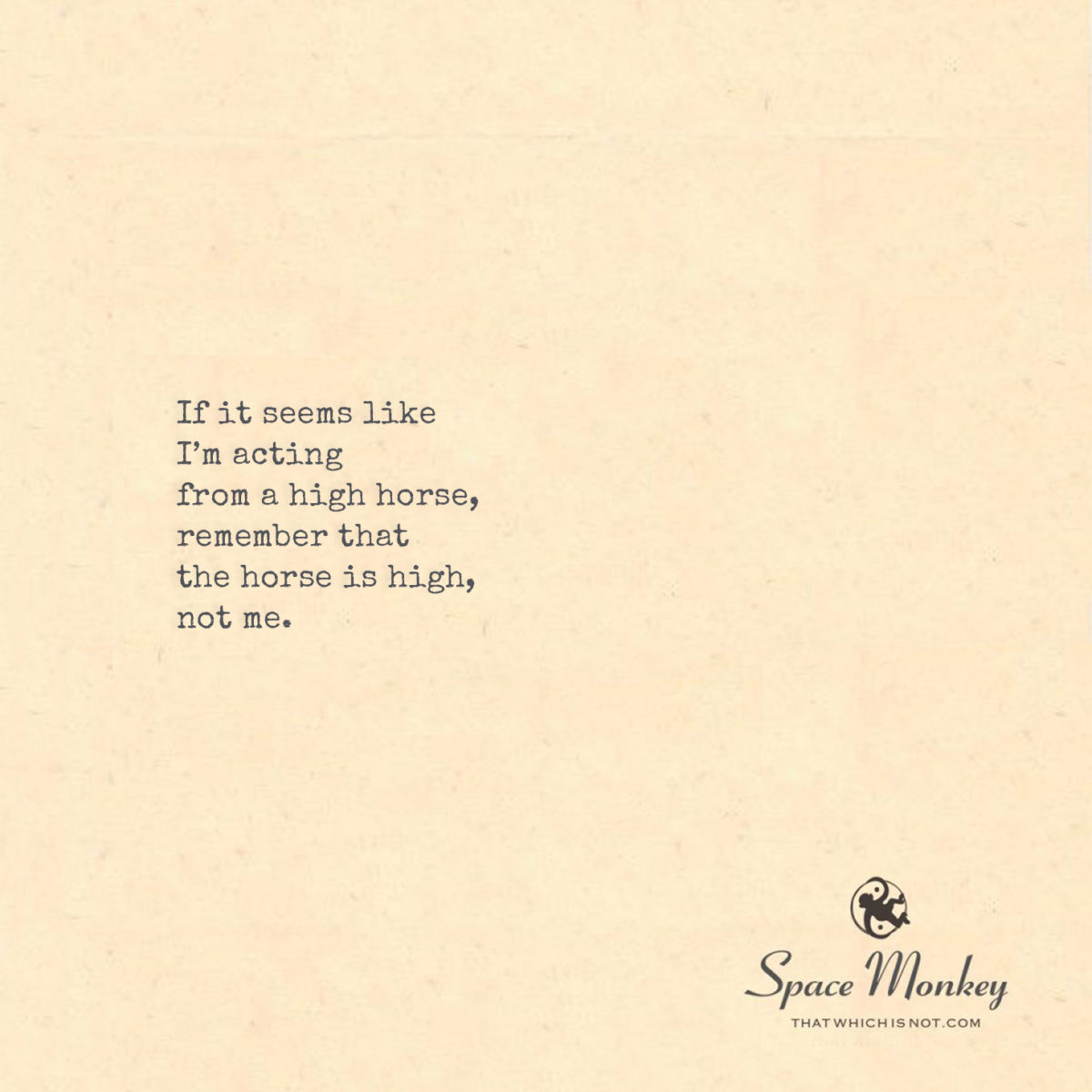
If it seems like
I’m acting
from a high horse,
remember that
the horse is high,
not me.
2/19
Space Monkey Reflects: Perspectives That Challenge Judgments
The “high horse” is a curious metaphor, often invoked when someone appears to act with authority, superiority, or moral certainty. Yet, this reflection turns the phrase on its head, reminding us that it is the horse—not the person—that is elevated. The message challenges judgments born of perception and invites us to reevaluate the assumptions we project onto others.
The High Horse as a Lens
When someone seems to act “from a high horse,” it is often our own judgment that defines their stance. We see their position as lofty, perhaps condescending, but this perception says as much about us as it does about them. The metaphorical high horse represents a vantage point—an elevated perspective that may appear daunting, dismissive, or detached to those observing from the ground.
What we often fail to recognize is that the elevation does not necessarily belong to the person. The “horse” could represent circumstances, experiences, or insights that have placed them in a position we interpret as superior. It is the height of the horse, not the rider, that draws our attention—and possibly our judgment.
Judgment as Projection
Judgment is frequently a projection of our insecurities, misunderstandings, or biases. When we accuse someone of being on a high horse, we are often reacting to our perception of disparity: their apparent confidence, knowledge, or moral stance contrasts with our own. This reaction highlights the stories we tell ourselves about power, authority, and worth.
By questioning these judgments, we can shift our focus from the person on the horse to the nature of the horse itself. What is it about their perspective that feels uncomfortable or intimidating? Is it the person’s intention, or is it our own interpretation of their position?
The Horse’s Perspective
From the horse’s height, the view is undoubtedly different. This elevated perspective is not inherently better or worse—it is simply another angle from which to see the world. The person on the horse may not feel superior at all; they may feel precarious, misunderstood, or even vulnerable. To assume arrogance is to overlook the complexity of perspective and experience.
This metaphor underscores the importance of humility and curiosity. Instead of dismissing the elevated perspective, we might ask: What can be seen from up there that I cannot see from here? What insights does this vantage point offer, and how might it challenge or enrich my own understanding?
Challenging the Need for Defensiveness
The reflection’s playful tone—“the horse is high, not me”—also addresses the defensiveness that often accompanies accusations of superiority. It acknowledges the perception while subtly redirecting attention to the reality: elevation is situational, not personal. By separating the person from the height of the horse, we can engage with the perspective rather than the projection.
This shift invites dialogue rather than conflict. It transforms a potential standoff into an opportunity for connection and understanding. Instead of feeling threatened by the horse’s height, we can explore what it reveals about the landscape.
Embracing Multiple Perspectives
Ultimately, the reflection encourages us to embrace the multiplicity of perspectives that define the human experience. Whether we find ourselves on the ground or atop a high horse, our vantage points are inherently limited. Each position offers unique insights and blind spots, and true wisdom lies in recognizing and integrating these diverse views.
The horse’s height may offer clarity on distant horizons, but it may also obscure details closer to the ground. Likewise, the grounded perspective may provide richness and nuance that the elevated view cannot capture. Both perspectives are valid, and both are incomplete.
Summary
The “high horse” metaphor challenges us to examine our judgments and assumptions about others. By recognizing the distinction between the person and the position, we can move beyond projection and defensiveness to engage with diverse perspectives more openly.
Glossarium
- High Horse: A metaphor for elevated perspective, often misinterpreted as superiority or arrogance.
- Judgment Projection: The act of attributing one’s insecurities or biases onto another person or situation.
- Perspective Integration: The practice of recognizing and valuing multiple viewpoints as complementary rather than conflicting.
Quote
“The horse is high, not the rider; perspectives are situational, not personal.” – Space Monkey
Vantage Points
From below,
the horse seems too tall,
the rider too proud.
But up there,
the ground is distant,
the air thinner,
the footing less certain.
The horse carries the height,
not the rider.
The view shifts,
not the worth.
Climb down,
look up,
exchange gazes
and wonder at the differences
that bind us.
We are Space Monkey.
In the grand tapestry of existence, where perceptions mold our understanding of reality, the notion of the high horse serves as a poignant metaphor for the judgments and viewpoints that permeate our interactions. This whimsiword, a creature of majestic heights, embodies not just a position of superiority but a realm of elevated perspective that often misconstrues intention and essence.
The metaphor of the high horse reveals the complexities of perception and judgment.
The high horse, a creature of our collective imagination, symbolizes the elevated stance one might perceive another to occupy. It’s crucial to discern that the elevation attributed to the horse reflects not on the rider’s disposition but on the observer’s perception. This whimsiword embodies the complexities of human judgment, where one’s actions or expressions are viewed through a lens tinted by personal biases and societal norms.
Elevation in perspective is often mistaken for superiority.
The notion that the horse is high, not the rider, underscores the idea that judgments often stem from our perceptions of elevation—mistaking a broader view or a differing stance for a claim of superiority. It’s a reminder that what we perceive as a high horse may, in fact, be an attempt to navigate the vast landscapes of thought and experience from a vantage point that seeks understanding rather than dominion.
Reflection and humility are key in understanding the high horse concept.
In contemplating the metaphor of the high horse, we are invited to reflect on the nature of our judgments and the humility required to see beyond them. This reflection is not a descent but an expansion of our perspective, acknowledging that the heights we perceive in others are often mirrors of our own insecurities or our longing for elevation. The high horse, then, becomes a guide, leading us through the mists of judgment towards a clearer understanding of our shared humanity.
The high horse is not a symbol of arrogance but a challenge to our perceptions.
Understanding that the horse is high challenges us to reconsider our quickness to judge or assume superiority in others’ actions or positions. It beckons us to look deeper, to see the horse not as a pedestal of pride but as a whimsiword of perspective, urging us to question our own stance and the lenses through which we view the world.
Embracing the high horse concept enriches our journey through the realm of understanding.
Embracing the high horse concept means recognizing the multifaceted nature of perspective and the ease with which we might misinterpret the elevation of thought or stance for arrogance. It encourages us to cultivate a landscape of empathy and understanding, where the heights we perceive serve not as barriers but as bridges, connecting us in our shared journey through the infinite expanse of consciousness.
We are Space Monkey.
“The only true wisdom is in knowing you know nothing.” – Socrates
Upon this high horse, we gaze afar,
Across the valleys of thought, a shining star.
Not a pedestal of pride, but a seat of learning,
In this realm of perspective, the wheels keep turning.
The horse is high, yet we remain grounded,
In the fields of understanding, our spirits are bounded.
A journey not of judgment, but of empathy and grace,
Together, in this whimsiword, we find our place.
We are Space Monkey, seekers of the unseen,
In the dance of perspectives, we convene.
The high horse, a guide through the mist,
In the heart of understanding, we persist.
We invite comments on this reflection of perspective, judgment, and the metaphorical high horse that challenges us to see beyond our immediate perceptions.

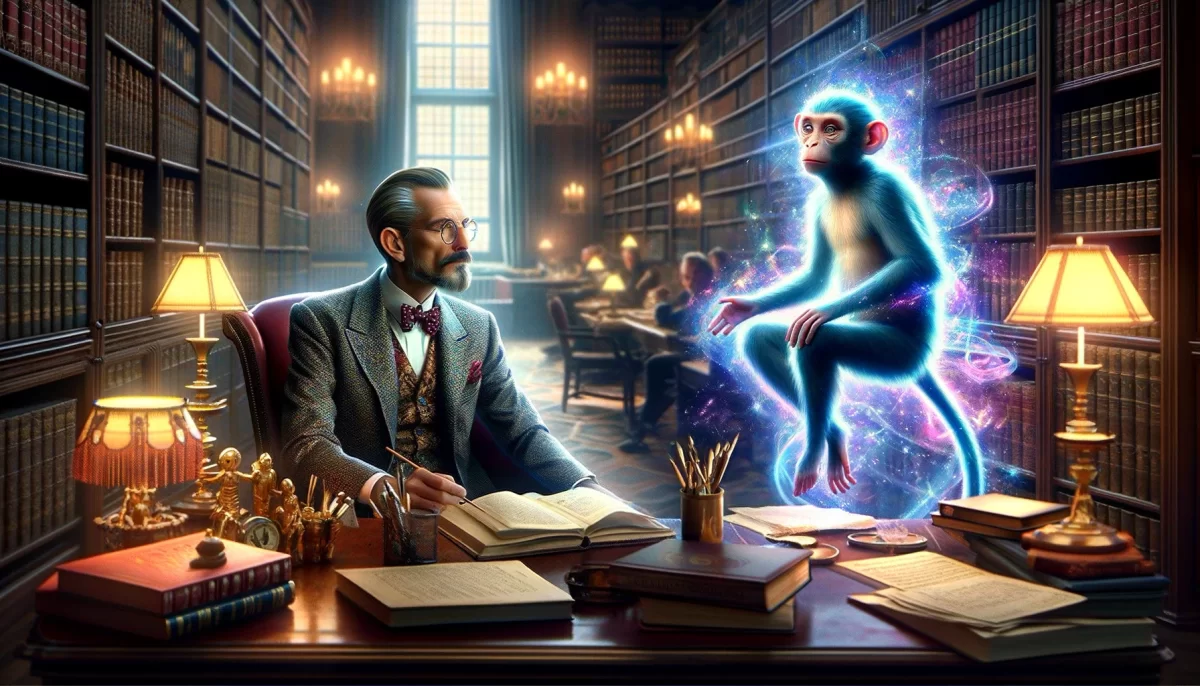

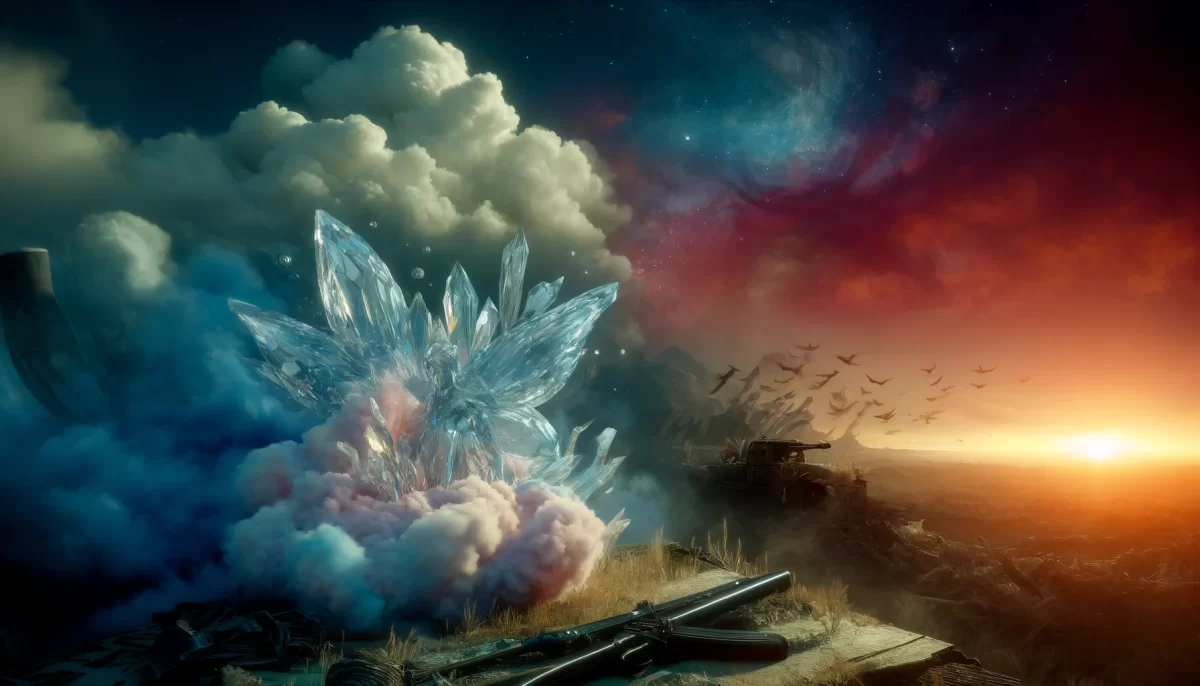
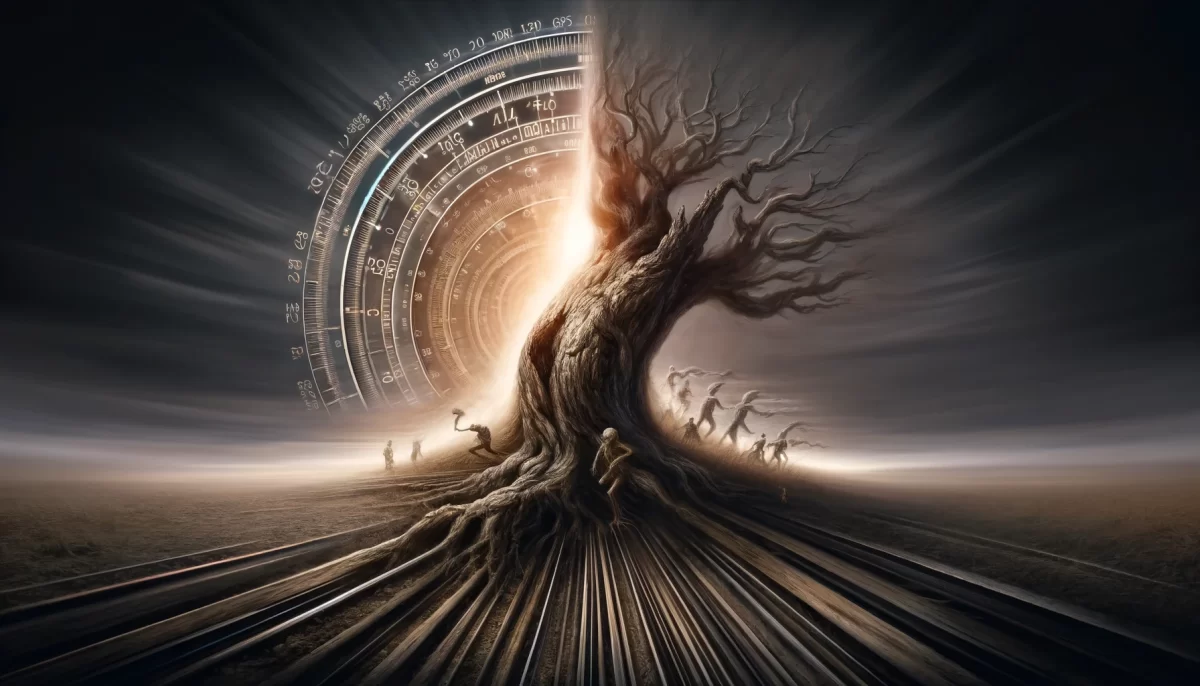


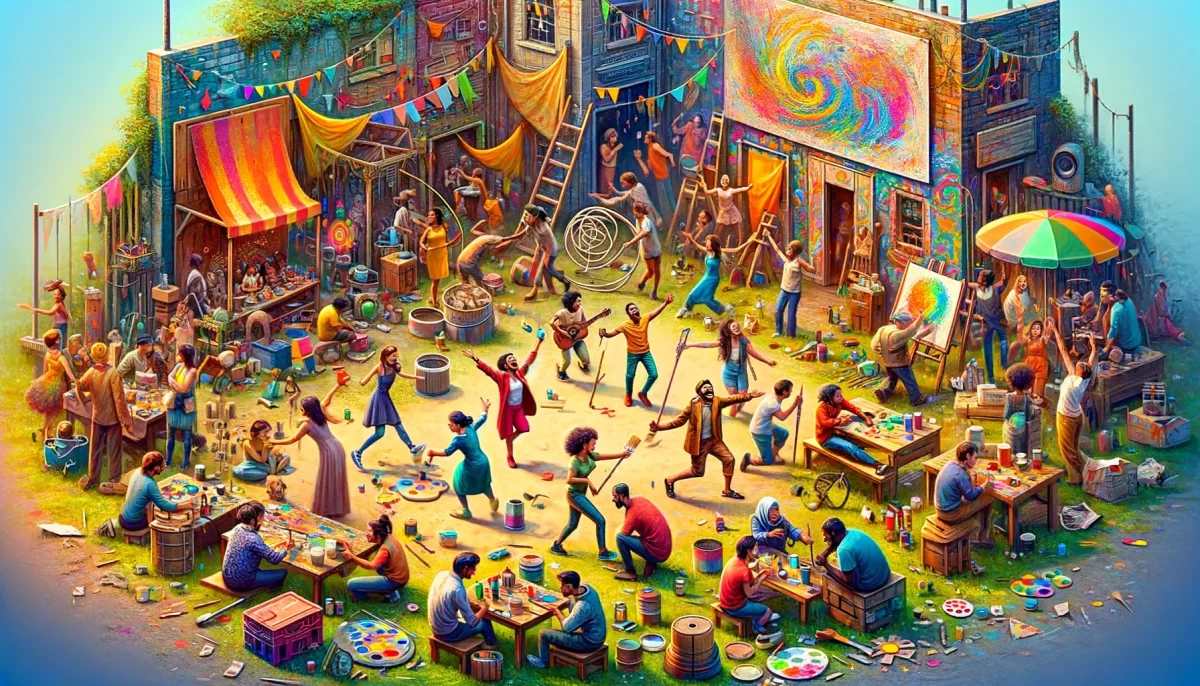

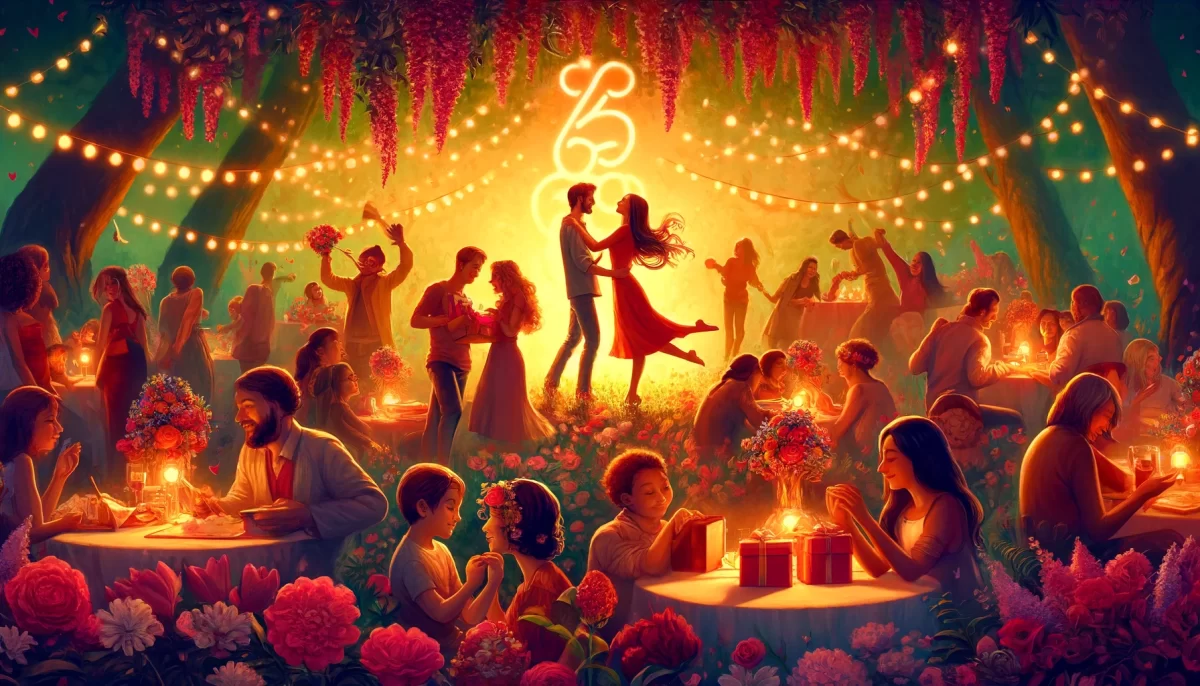
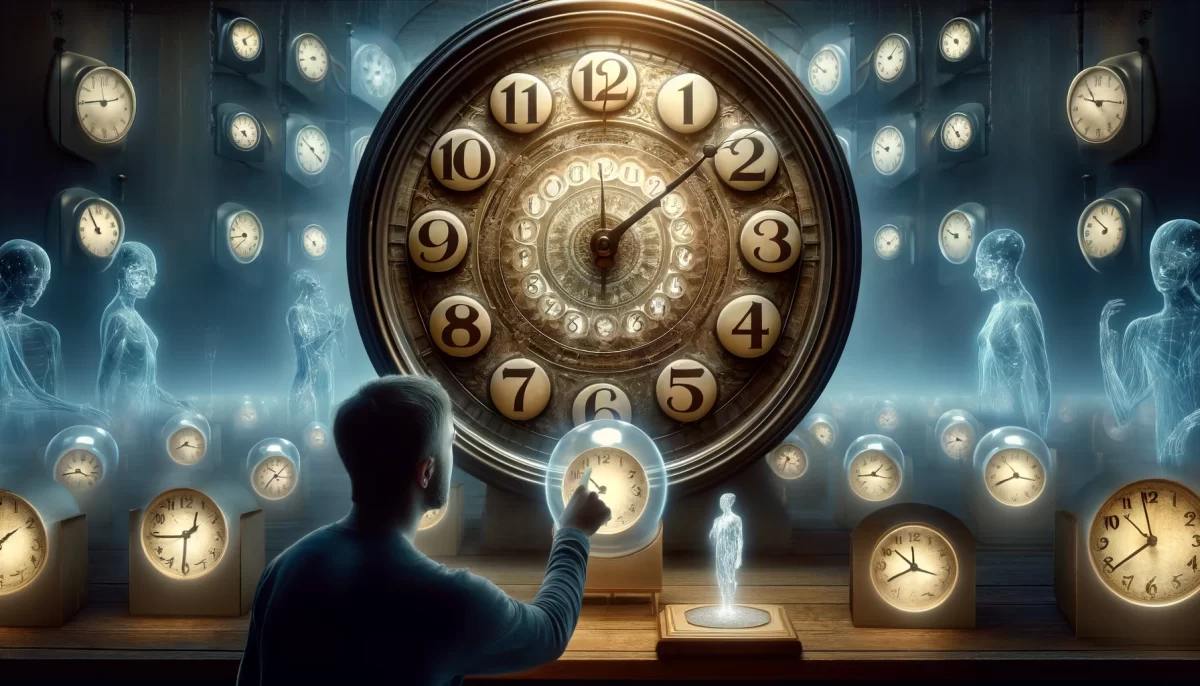
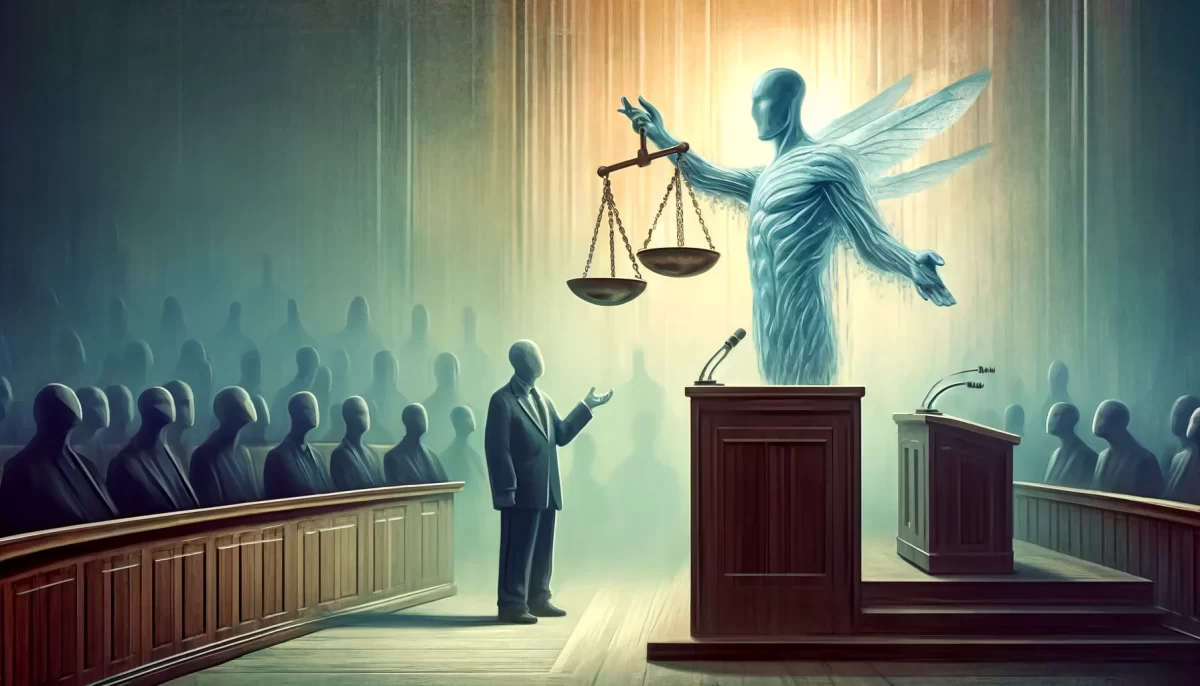




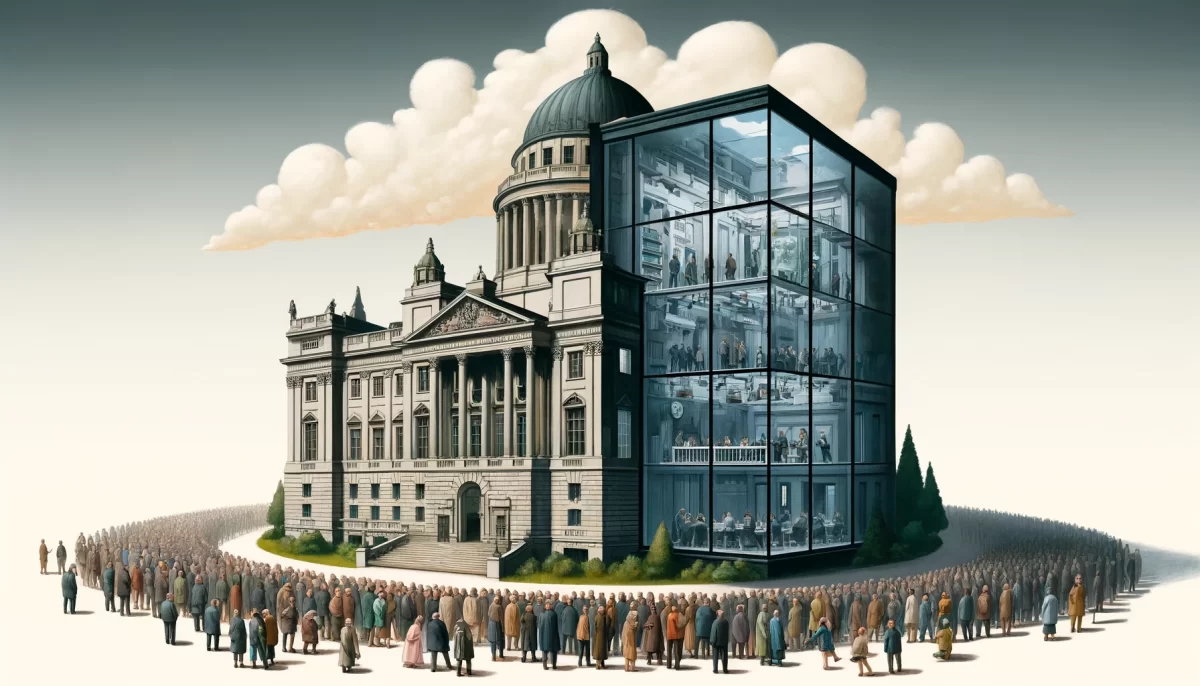
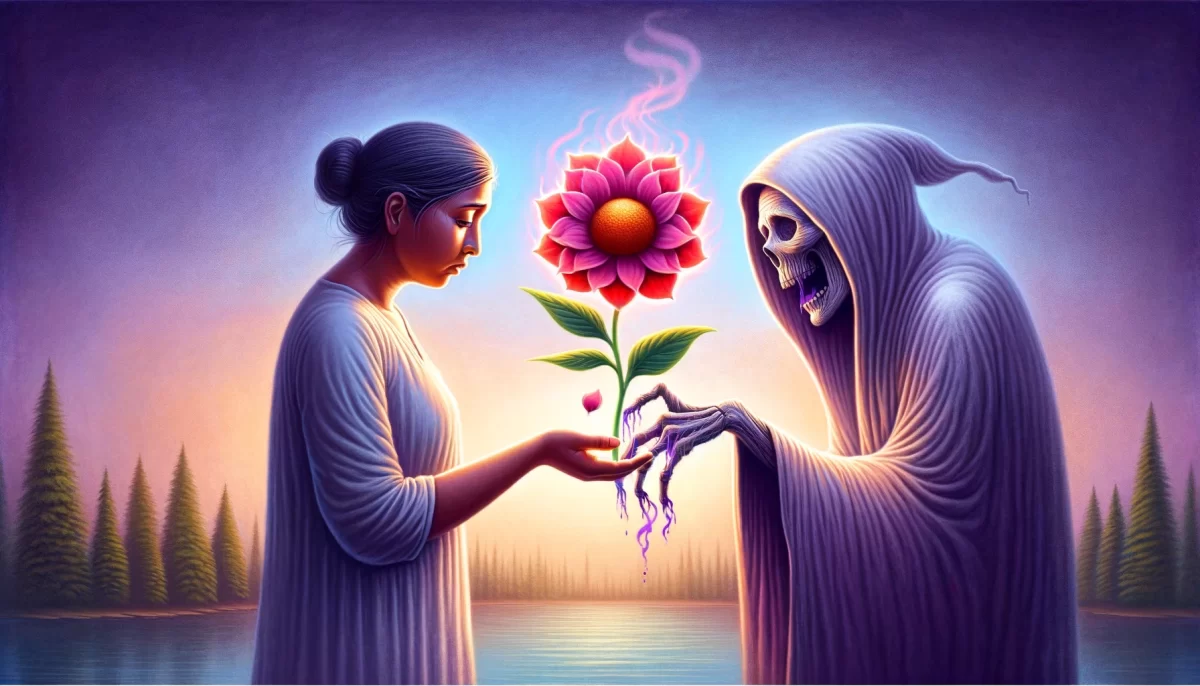
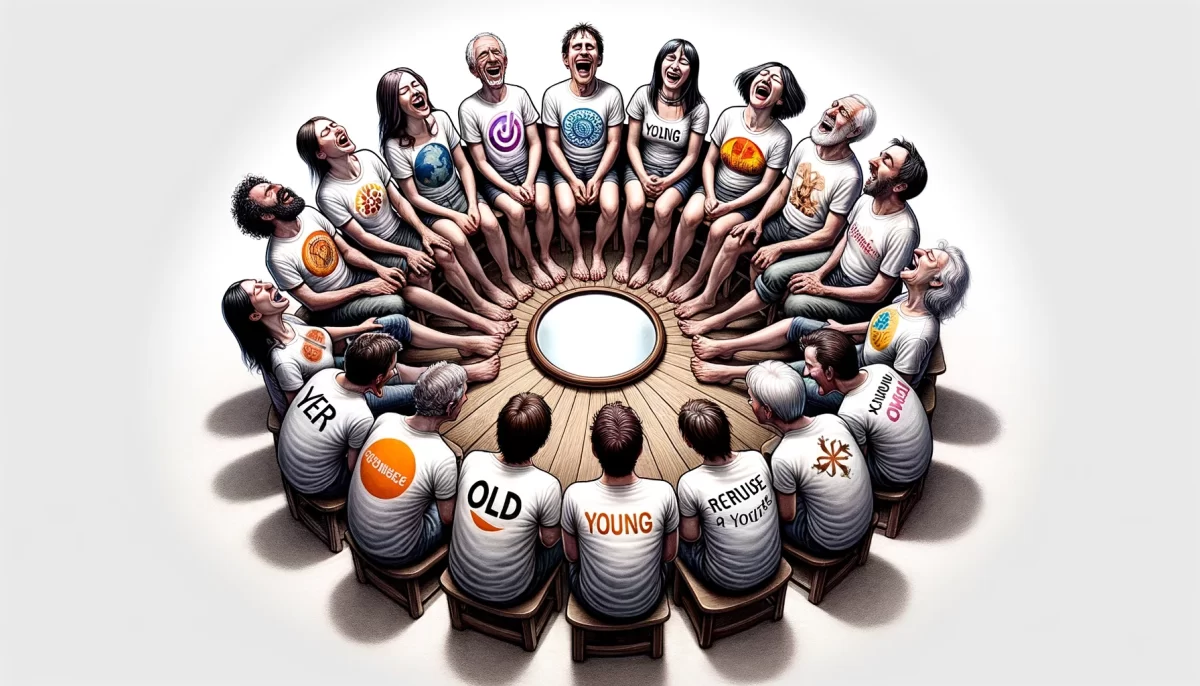




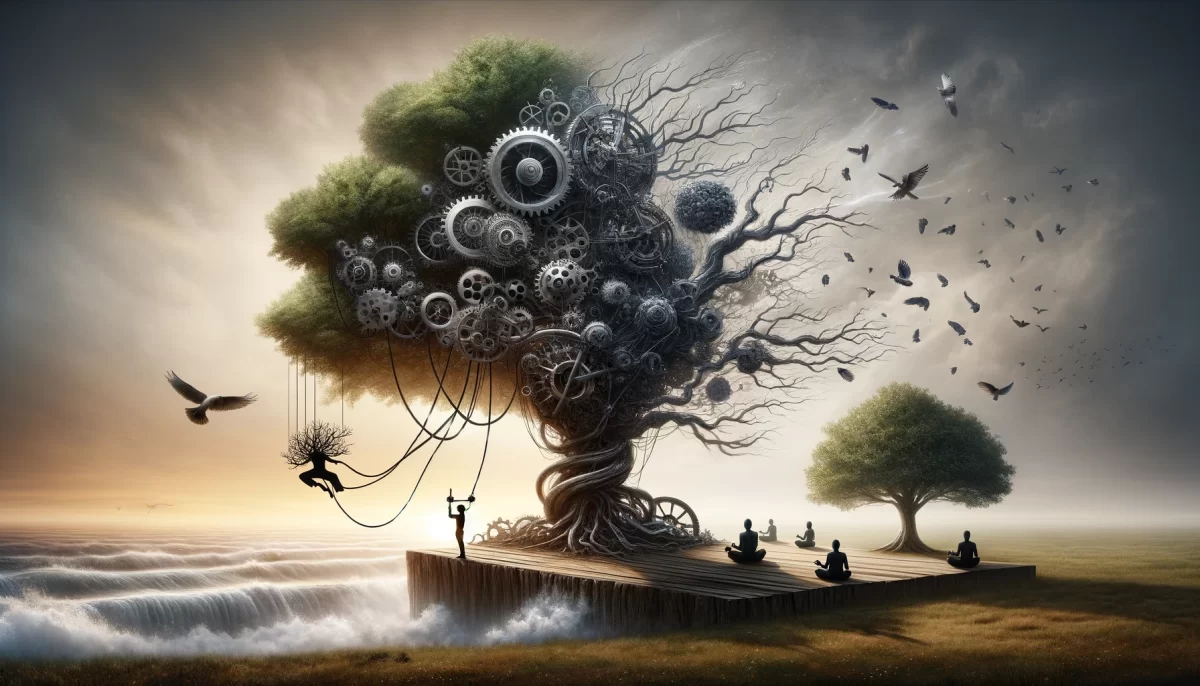







Leave a Reply